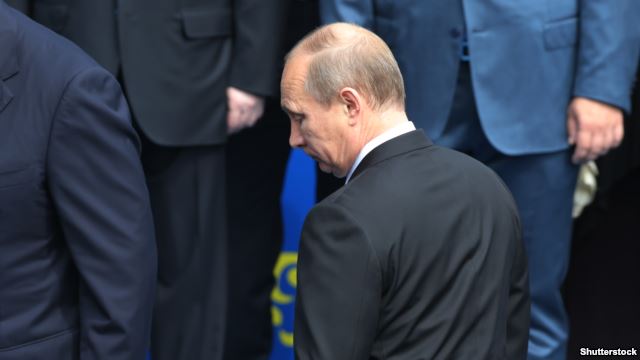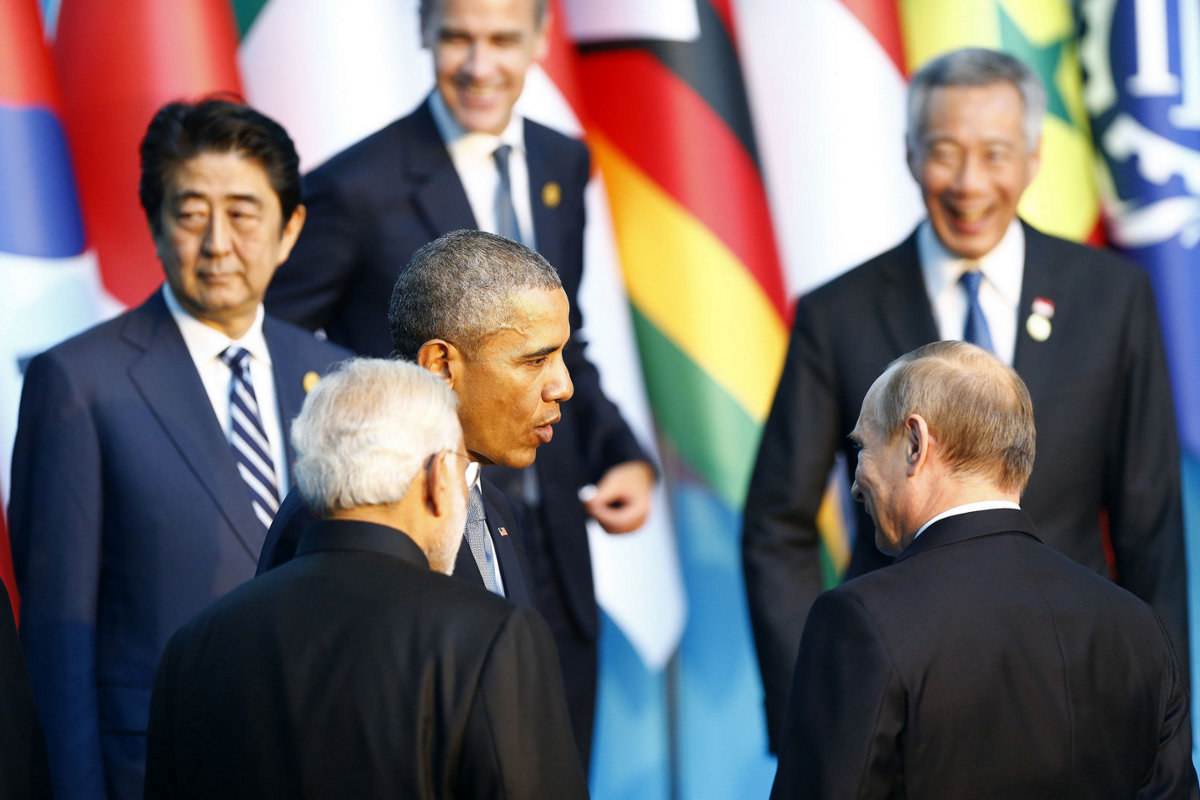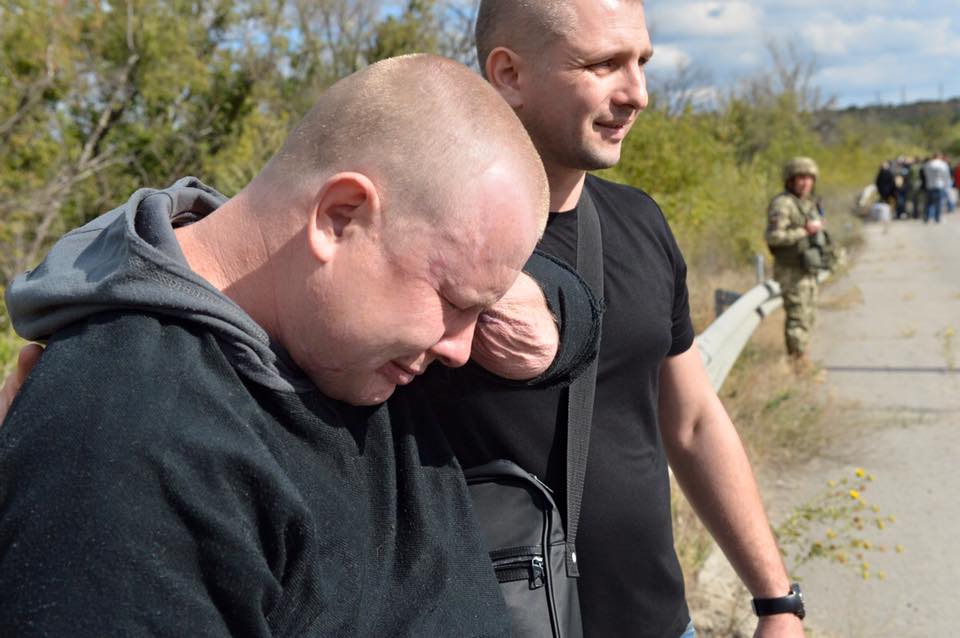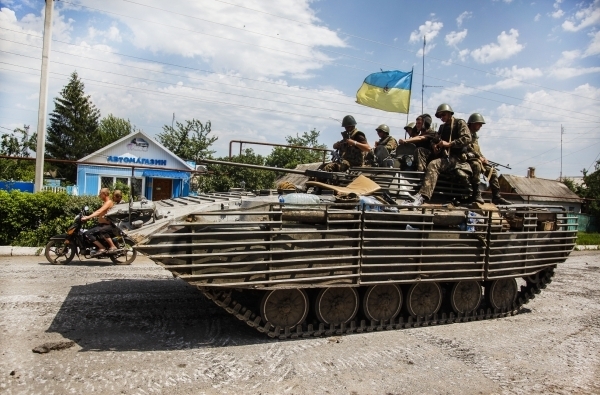In Milan, on October 16-17, a meeting is to take place between President Petro Poroshenko and Russian President Vladimir Putin during the Europe-Asia ASEM summit. The meeting is planned according to the ‘Normandy format’ which includes Ukraine, Russia, Germany and France. However, experts in Ukraine and Europe are cautions about their expectations, though they do emphasize the extreme importance of the issues which interfere with full peaceful regulation in the Ukrainian East.
On October 15, President Petro Poroshenko held a phone conference with the Europeans regarding the preparations for the meeting with the Russian leader in Milan.
Preparations are happening not only on the diplomatic level. Some head advisors to the chairmen of Ukrainian military structures stated that Russia stands behind the incitement of violent protests on Tuesday near the Verkhovna Rada and on Monday near the President’s Administration. The goal of this unrest, as has been emphasized before, is to undermine Ukraine’s position on the eve of the meeting, weaken the Ukrainian government and integral Ukraine from the inside.
“An entire range of issues regarding Ukraine, such as gas and the Minsk agreement, will be on the agenda, along with other international issues. I expect an honest discussion and progress in the execution of the Minsk agreement. The progress which was expected was not achieved, and we have to discuss how to make the Minsk agreement reality,” said German Chancellor Angela Merkel at a press conference in Berlin.
German and French Foreign Affairs Ministers called to execute the Minsk Memorandum fully to regulate the situation in Ukraine. According to Frank-Walter Steinmeier, it is necessary to ensure conditions for truly effective control at the border inside the conflict zone.
The Milan topics also include, according to the head of German diplomacy, the continuation of hostage exchange, as well as the creation of a 30-kilometer safety zone inside the conflict area.
French MIA head Laurent Fabius, on his part, emphasized the need for general deescalation of the situation in Donbas.
The governments of Germany and France hope to receive the OSCE’s response this month regarding the provision of German and French drones to monitor the situation in Ukraine.
Meetings as the effect of Western sanctions
The meeting between Russian and Ukrainian Presidents which is to take place in Milan are unable to lead to the end of the crisis in Donbas, however they are important, thinks former Ukrainian Foreign Affairs Minister Andriy Deshchytsya.
“I would like to be an optimist, but I think this meeting will not be easy. The results of one meeting cannot solve such a difficult issue as regulation in the East of Ukraine. Holding such a meeting is a success in itself. The agreement to it means that Putin understood: he has ended up in isolation. Even a few months ago, Russia would not have examined such a possibility,” Deshchytsya noted, adding: “The fact that they agreed to the meeting was the result of sanctions, as well as convincing or pressure on part of the West.”
Leading expert at the Center for European Policy in Brussels Amanda Paul carefully evaluated the beginning of the retreat of a certain number of Russian troop from the border of Ukraine and the influence of this factor on the meeting in Minsk.
“We have to be very cautions, in order not to fall into euphoria because Russians are retreating from the Ukrainian border. This sounds nice, however at the same time the Ukrainian border is not being thoroughly controlled. Second, the ceasefire is still being violated every day. Combat for the Donetsk airport continues. People continue dying as they have before the signing of the ceasefire. Everything points towards the fact that Russia is not fully respecting the ceasefire agreement,” the expert says.
“The international community has to make it clear that should Putin’s behavior not change within a certain span of time, there will be further consequences [sanctions],” Paul added.
According to her, “it is unlikely that a breakthrough will occur” in Milan. If only because, she explains, President Poroshenko is holding parliamentary elections within a week.
“I think this narrows down his maneuvering space, if he wanted a breakthrough to happen. Second, and most importantly, there are few signs that Russians adhere to ceasefire agreements strictly,” the analyst added.




